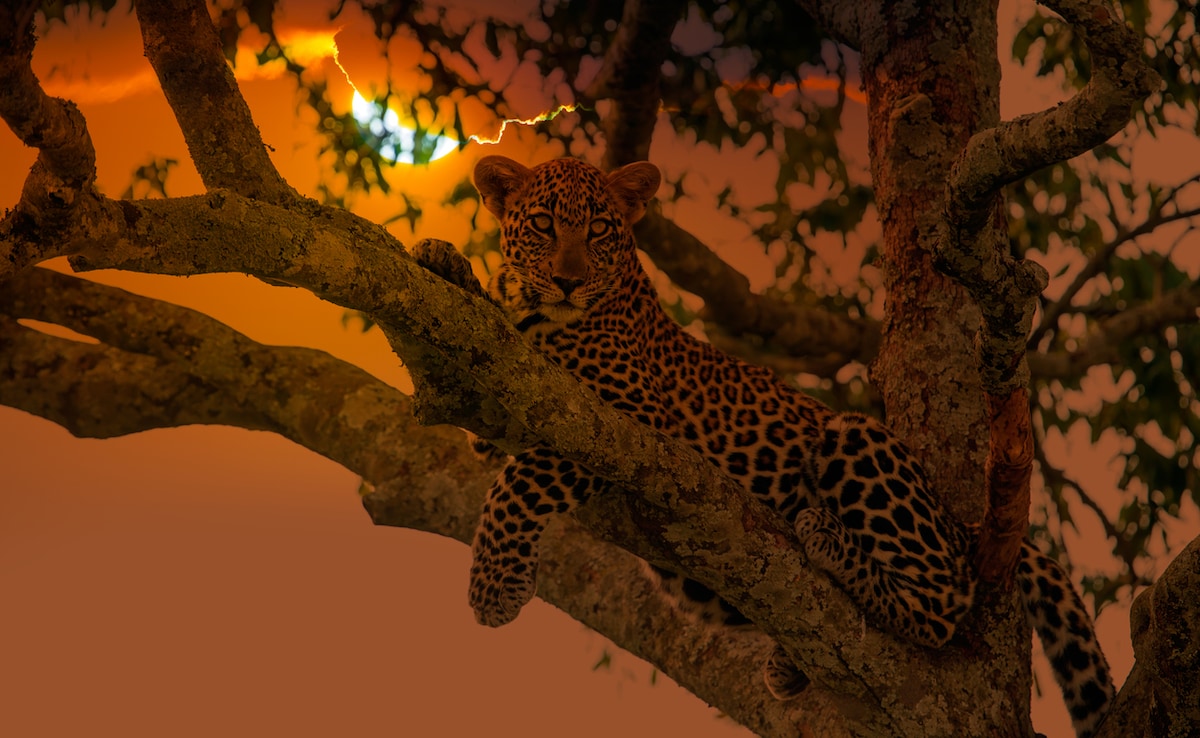
There's something wild and thrilling about heading into the dark heart of the wilderness after sunset. Night safaris are unforgettable — shadowy hyenas on the prowl, owls swooping overhead, the rustle of something unseen in the tall grass. Whether you're deep in the African bush or tucked into the tropical forests of Southeast Asia, the rules of the game change once the sun goes down. But before you hop on that 4x4 or sign up for a guided walk under the stars, there are a few important things you really shouldn't do. These aren't just little slip-ups — they could ruin your experience or, worse, put you (and the wildlife) in danger. Here's what NOT to do on a night safari!
Also Read: 5 Wild Night Safaris In India That'll Totally Change How You See The Jungle
Here Are 6 Things You Must Avoid Doing During A Night Safari:
1. Use Flash Photography
Let's start with the biggie: Never, ever use flash when taking photos. While that glowing-eyed lion or prowling civet cat might be begging for an Instagram moment, a camera flash can completely disorient animals, disturb their natural behaviour, and in some cases even cause retinal damage — especially for creatures with sensitive night vision. Most reputable guides will warn you about this up front, but it's astonishing how many people ignore it for the 'perfect shot'. Stick to low-light settings or invest in a proper night photography setup if you're serious. Otherwise, just enjoy the view with your eyes — it's honestly better that way.

Photo: Pixabay
2. Wear Bright Or Reflective Clothing
Think neon jackets are fine because it's dark out? Think again. Bright colours and reflective materials can startle animals, draw unnecessary attention, or even spook your fellow safari-goers. Wildlife have evolved to operate in low light, and your hi-vis vest might throw everything off. Stick to neutral tones like olive, brown, grey, or black — these blend in with the surroundings and help minimise disturbance. Oh, and skip the cologne or perfume while you're at it-strong scents are just as off-putting to animals.
3. Make A Lot Of Noise
It might be tempting to crack jokes with your travel buddy or ask your guide a million questions, but silence is golden on a night safari. Loud chatter can scare away wildlife long before you see them-and you'll mostly end up watching the bush instead of the animals in it. Many creatures rely on sound to hunt, hide, or communicate, so your noise doesn't just affect your experience — it affects theirs, too. Save the commentary for after the drive, and soak in the sounds of the night while you're out there. It's honestly one of the best parts.
Also Read: Safari Packing Guide: What To Take For Your Next Wildlife Adventure
4. Wander Off From The Group
This should go without saying, but don't be that person who thinks it's fine to sneak a few steps into the undergrowth for a better view. Night safaris are carefully managed for a reason. Visibility is limited, terrain is unfamiliar, and predators are far more active once it's dark. Even if you're on foot with a guide, wandering off is not only reckless — it can be dangerous. Many animals rely on stealth and surprise, and you're not going to win a game of hide-and-seek with a leopard.

Photo: iStock
5. Use A Torch Without Asking
Some night safaris provide red-filtered torches, which are much gentler on wildlife eyes and help keep the natural vibe intact. But pulling out your own blinding LED torch? Major faux pas. Sudden bursts of light can scare off animals or even provoke a defensive reaction. If you're dying to use your torch to spot something, ask your guide first. They know how to light up the night safely and responsibly.
6. Ignore Your Guide's Instructions
It doesn't matter how many nature documentaries you've seen — your guide is the expert here. They know the land, the animals, and how to stay safe. If they tell you to stay seated, stay seated. If they ask for quiet, zip it. Too many people think they can wing it or that the rules are optional. They're not. Night safaris operate under strict conservation protocols, and ignoring them isn't just rude-it can lead to dangerous situations or even fines in certain national parks.
Track Latest News Live on NDTV.com and get news updates from India and around the world

